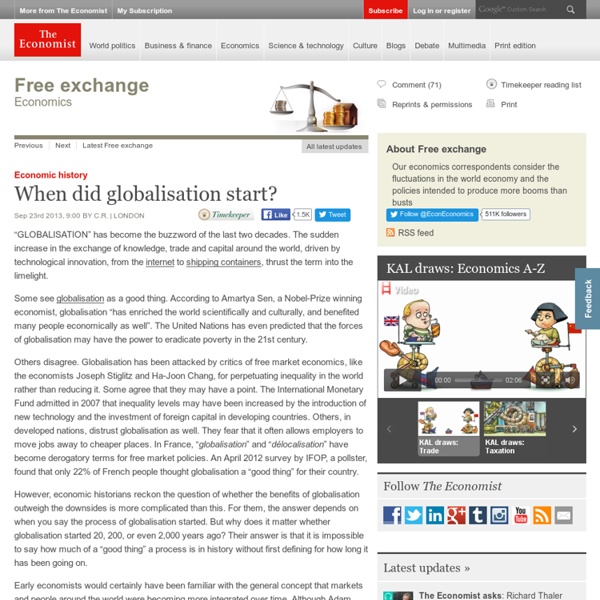Economic history: When did globalisation start?

David Held - Global Covenant: The Social Democratic Alternative to the Washington Consensus
Description In this pathbreaking book, one of the world’s leading analysts of globalization and global governance confronts the failures of international politics in the aftermath of 9/11 and the war against Iraq. He argues that there were and are alternatives to the way the western coalitions responded to the profound challenges of mass terrorism and political violence - alternatives which can better address the roots of these challenges and deliver political and social justice. In order to grasp this alternative, the changing structure of the global order has to be understood. To this end, the book is divided into three sections: economics, politics and law. In each section contemporary trends are analyzed, problems confronted, and a series of detailed policies set out. This is an original book that will appeal to all those - students, policy makers, and the general reader - who confront questions about globalization and global governance. Hardcover Status Available Edition First Edition
Related:
Related:



